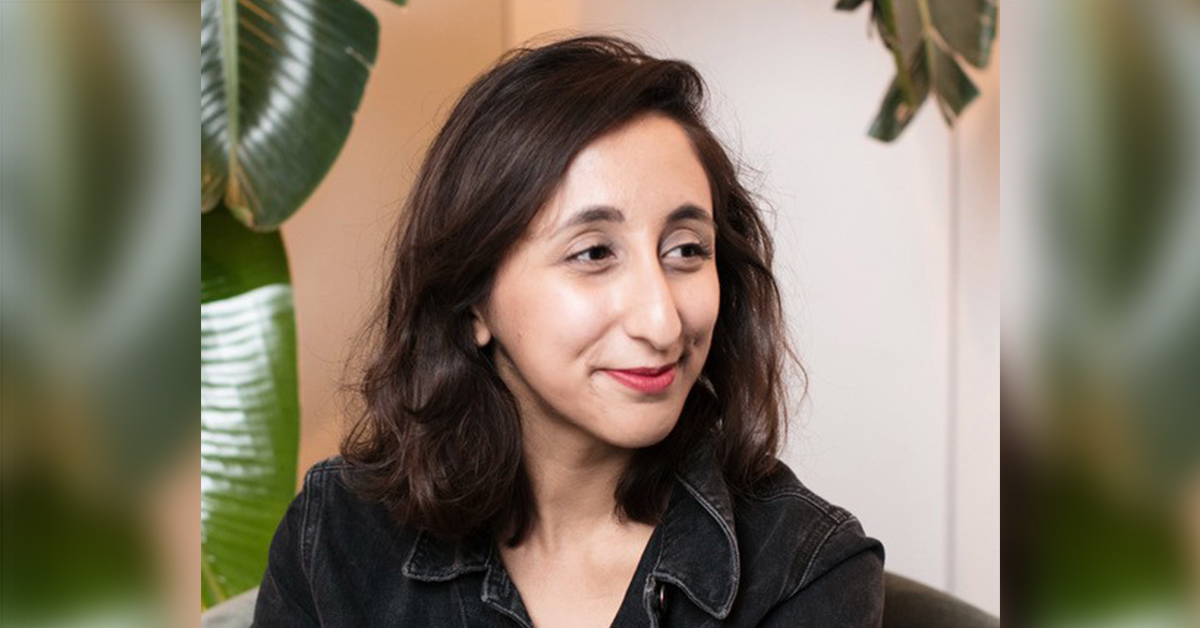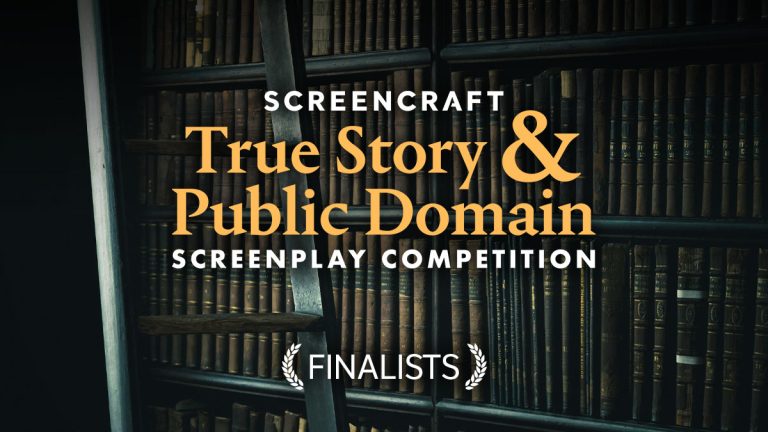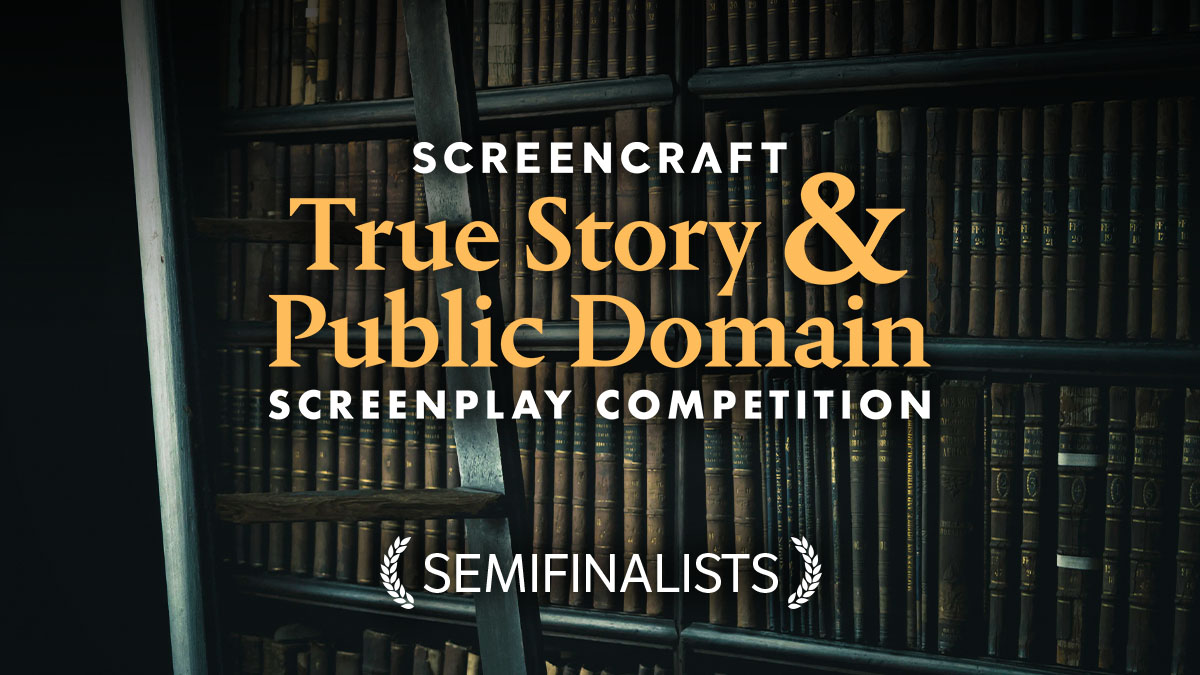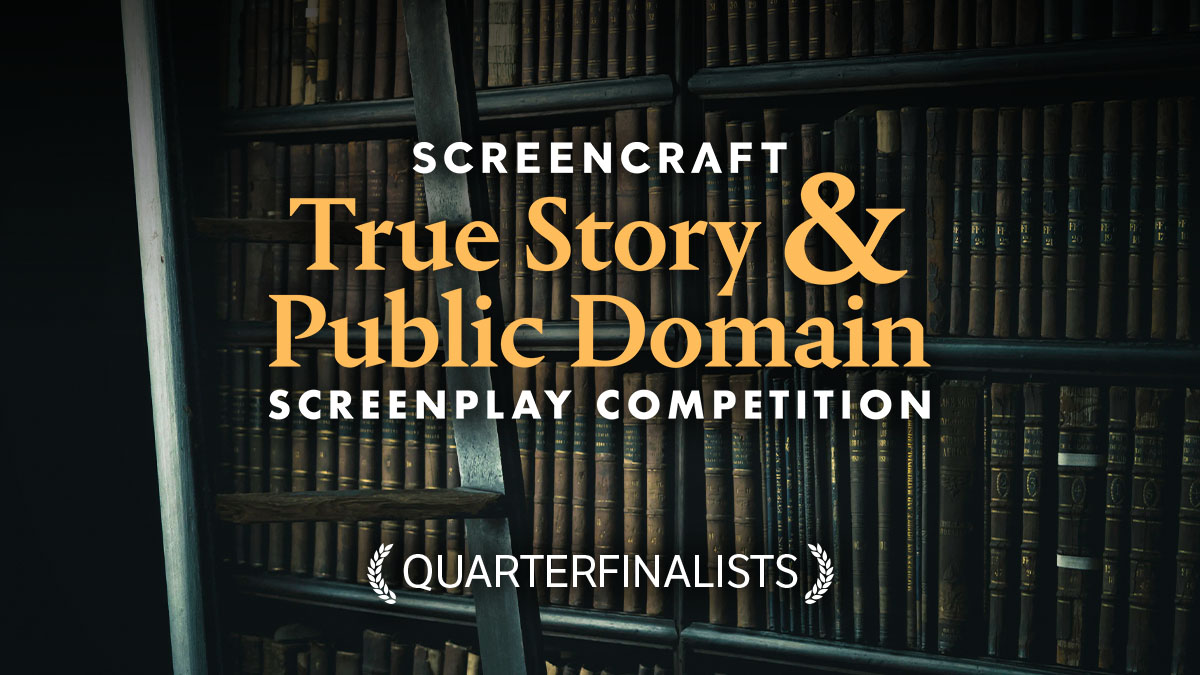Interview with ScreenCraft Winner Zara Meerza

Zara Meerza is a British - Indian filmmaker, journalist, and screenwriter based in Los Angeles. This past year, she won the inaugural ScreenCraft Public Domain Screenwriting Competition, with her Pilot Yellow: set at the end of the 19th century as the bitter rivalry between Joseph Pulitzer and William Randolph Hearst reaches a boiling point and “yellow journalism” is born. In addition to the excellent writing, the timely concept and vivid world of a crumbling corrupt New York City impressed the judges.
Do you have a script based on work from the public domain? Enter the ScreenCraft Public Domain Competition here.
Zara has previously worked with the BBC, Warp Films, Sky Arts and the BFI across television, film, and festivals, and found her way to writing by way of a teenage career in the music industry, a stint in the art world, and masters degrees at Cambridge University and UCL. In 2017 she was a Producers Guild of America Diversity Fellow, as well as Black List x Women In Film Episodic Lab Fellow. She was a 2018 Sheffield Doc Fest Future Producer, and a 2018 ATX Television Festival & Black List TV Writing Program Fellow. She is also a co-founder of Women on Docs LA and regularly hosts panels at documentary screenings and festivals.
Additionally, she serves on screening committees and juries for film festivals, fellowships and screenwriting competitions, including True/False, Camden International, Open City Doc Fest, Women in Film LA, and BAFTA.
We had the opportunity to follow up with Zara after her win and ask a few questions. Her answers are below.
What’s your background and how did you get into writing?
My background is a bit all over the place... I had a teenage career in the music industry running independent record labels and working in music journalism and PR, then swiftly dropped in and out of a bunch of universities before spending five years in academia studying Art History. I then headed to work for the BBC in documentary development and production. I always had an active interest in journalism which wove through all of these parts of my life in a freelance capacity, but generally, I had the perception that screenwriting was something that was much more inaccessible so didn’t consider it as an option to explore.
Then I had the fortune of being accepted onto a fully-funded screenwriting course at the BFI, the tail end of which coincided with my only Drama development job, which was at Warp Films. Both of these environments totally dispelled my belief that screenwriting was something I couldn’t do, or that it couldn’t cross over with a career and the skills I had developed in documentary. What I learned was that a journalistic approach could very much inform dramatic writing, while also seeing that the vice versa could also be true. It was during this time that I wrote my first pilot Yellow which then hijacked my life in the best possible way.
Can you walk us through the process of how you relocated and eventually signed with your manager?
After I finished the pilot and bible for Yellow for the second round of the Sundance Episodic Lab, I did a lot of research into the other places I could submit it. I applied to as many reputable competitions and fellowships as I could, and two would go on to be instrumental in the process of getting signed and moving here. One was the Producers Guild Diversity Fellowship which was what initially brought me to LA that spring. Within a week or so of being in town for that my script went up on the Black List website and began getting good scores.
Very soon after a few managers started reaching out. Somewhere between dealing with that surreal situation and flying home to vote in the snap election, I met my manager Jeff, who then set me up on a series of meetings with companies and studios who all really encouraged me to try and make the move full time, mostly as the bulk my ideas were based on American subject matter both in the documentary and drama space. I then went back and forth between LA and London for meetings and other fellowships while I applied for my visa, which was long, daunting, expensive and about a million other things, but thankfully worked out. Shortly before I made the move last summer, I was hired to adapt an article from The Intercept into a series and have since been working on that and a few other projects since!
How did you find screenwriting contests such as ScreenCraft’s to be a valuable resource in your approach to the industry?
I really believe that without the support of ScreenCraft and the other institutions who have given me fellowships and awards I would be in a very different place. The profile that these opportunities have afforded me has gotten me into many rooms, and they’ve connected me to several people I otherwise would not have met or had access to.
One of the mentors of the ScreenCraft Public Domain Competition gave me some of the most valuable advice of my career, and on another of my fellowships, I received my first meetings with Netflix, HBO, and Fox, just months after writing my first pilot. These are relationships that are ongoing and are so valuable to my career and my support system being new to the scripted world and LA in general. What I was really surprised to find was how much ongoing support places like ScreenCraft and the Black List give their writers going forward, you really feel like you’re privy to impartial mentors and a very warm, giving community.
Learn everything you need to know about screenwriting contests, competitions and fellowships with this free guide.
Most writers juggle a professional life, personal life, and writing. How do you approach your writing schedule? Do you have a regimen that works for you?
I think like many writers my approach is pure self-sabotage. I need the heat of a deadline to do my best work, and often when you find yourself working on spec deadlines float off as you’re only accountable to yourself. My way of dealing with that is scheduling myself so heavily with other work and meetings that I have to force myself to write in bursts during the gaps. When I can, and it’s rare, I also try to find residencies or a change in environment (even if it’s just house swapping with a friend for a bit) which I find are really incredible for really nailing a piece you’re struggling to finish.
While many writers want to sell the final draft of their first project, it often takes a long time. How many years have you been writing and how many scripts have you written?
I’ve been writing screenplays for about two and a bit years. I’ve written three scripts that I’d consider fully fleshed out and have a few in more nascent stages. I usually write very in-depth treatment/bibles before I start getting down to a script, so have far more of those further down the line!
From a craft standpoint, what do you feel is the hardest part about getting a screenplay where it needs to be?
I find the most challenging thing is keeping the momentum and enthusiasm going through rewrites. You have to really want to and need to fight for your characters and get to know them beyond what you initially imagined, and as a naturally shy person this part of development can be tough to carry back to the page after notes, but it does seem to get a bit easier with experience!
Do you have any advice for writers dealing with the discouragement that comes with rejection?
Don't give up if you really believe in the work. Take rejection as a catalyst where you can. I think you have to have as many ideas on the go as possible, as it’s just important to be able to adapt, take criticism and keep writing to remind yourself why you love what you do. I try my best to respond to rejection with a reaction that’s productive (that doesn’t mean it doesn’t make me cry/need a lot of ice cream sometimes), but with every set back I try to apply for something new or start a new project.
Congratulations on your early career momentum. What’s next for you?
Thank you! I’m currently out pitching my latest series Crisis Games Society and am developing a TV series about the beginnings of Cambridge Analytica based on a brilliant Mother Jones article. I’m also about to partner with two magazines/websites on developing TV series based on articles of theirs, and I’m working on my first feature, a dark comedy murder mystery called Motion Picture Murder, about the death of an aging scream queen at a retirement home for members of the Academy.
For all the latest ScreenCraft news and updates, follow us on Twitter, Instagram and Facebook!
Get Our Screenwriting Newsletter!
Get weekly writing inspiration delivered to your inbox - including industry news, popular articles, and more!



























